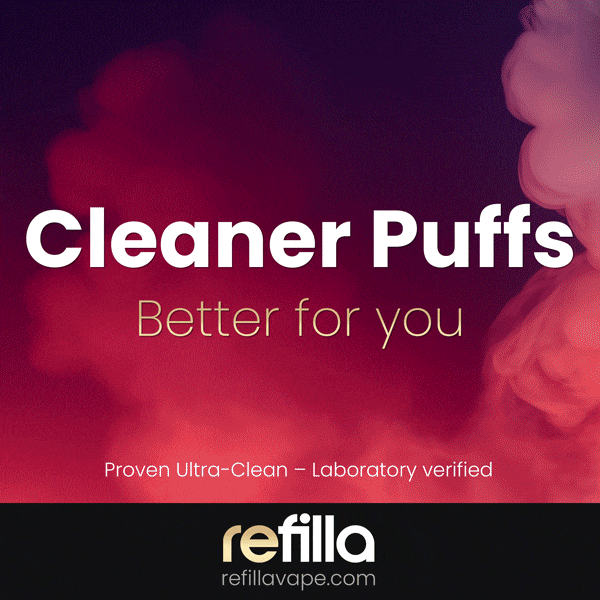The Great British Spring Clean is being is celebrated this month and campaigners are calling on Litter Heroes across the country to help improve the environment on their doorstep.
According to Zero Waste Scotland, cigarette-related materials are the most common forms of litter seen on the streets, with butts being the biggest offender. It is estimated that 475 pieces of litter are dropped every minute in Scotland alone, costing tax payers £46 million annually to clear.
It was recently reported that cigarette butts make up 9 percent of identifiable litter found in the UK’s freshwater environments.
The study conducted by Plastic Oceans UK and Earthwatch Europe listed cigarette butts as the third highest item discovered, behind plastic bottles at 14 percent and food wrappers at 12 percent.
Along with dangers to aquatic wildlife and environment, there are also serious risks involved with nicotine remains seeping into these water supplies.
Taking anywhere between 18 months and 10 years to decompose, cigarette butts are extremely harmful to nature, which is why people can receive £50-£150 fines for littering them. Despite this, cigarette littering is still a common occurrence.
It has been estimated that over 4.5 trillion cigarette butts are dropped globally each year, with six million of these cases happening on the streets of London alone.
This evidence supports the idea that switching to e-cigarettes is not only beneficiary for the public’s health, but also the environment.
With batteries often forbidden from general waste due to toxicity and the recyclability of both metal coils and plastic e-liquid bottles, switching to vaping could lessen the damage to user’s health, and therefore the NHS, the economy and our planet.
To put this into the context of vaping, if a 20-a-day smoker was to switch to e-cigarettes they would vaporise around 3 to 4mls of e-liquid a day in a typical dual coil device. Over the average month this would equate to around two 60ml bottles a month, and 24 bottles a year.
While the EU’s TPD currently limits nicotine-containing e-liquid bottles to 10ml, the reintroduction of larger containers post-Brexit would be a huge benefit to the environment.
If you are a current vaper, check the packaging of your equipment and e-liquids to see if it is environmentally friendly. If you are a current smoker, maybe this has given you another reason to make the switch.
Want to find out more about the environment and sustainability within the vaping industry? Why not take a look at our other sustainability articles.
Remember: reduce, reuse, recycle.








